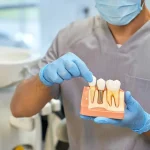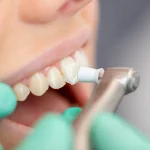Millions around the globe struggle with anxiety and depression; these are two very common mental health issues. Excessive worry and fear about things to come are hallmarks of anxiety. This worry often shows up physically—a racing heart, sweaty palms, and an inability to relax. It might look like generalized anxiety, panic disorder, or a fear of social situations.
On the other hand, depression is marked by persistent feelings of sadness, hopelessness, and a lack of interest or pleasure in activities once enjoyed. Daily life gets tougher; it’s hard to connect with people, perform at work, and generally feel good about things. This really impacts quality of life. The interplay between anxiety and depression is complex; they often co-occur, exacerbating each other’s symptoms.
For instance, an individual suffering from anxiety may develop depressive symptoms due to the chronic stress and fatigue associated with constant worry. Conversely, someone experiencing depression may find themselves increasingly anxious about their future or their ability to cope with daily challenges. These disorders are complicated. You have to consider a person’s biology, their mental state, and their social life to really understand what’s going on.
Anxiety and depression may stem from imbalances in mood-regulating neurotransmitters like serotonin and dopamine. Things like stress, hard times, and the way we live can really affect when these problems start and how bad they get.
Mushroom consumption: What are the upsides?
Psilocybin in mushrooms: a look at its psychoactive properties and what they mean.
Altered states of consciousness, brought on by psilocybin, may lead to powerful self-reflection and emotional growth. This can be a transformative experience for some. For example, some people report overcoming long-standing anxieties or depression after using psilocybin. Brain plasticity—the brain’s power to rebuild its connections—gets a boost from psilocybin. This leads to sharper minds and stronger emotional health.
The Neuroprotective Properties of Lion’s Mane Mushrooms
Lion’s mane mushrooms are particularly noteworthy for their neuroprotective properties. Hericenones and erinacines are inside. They trigger more nerve growth factor (NGF). NGF is a protein. It’s essential for neuron growth and survival. Without enough NGF, neurons weaken and die.
People use lion’s mane to improve their thinking skills and recall. It helps them focus and think more clearly.
Reishi mushrooms: What makes them so adaptable?
Stress got you down? Reishi mushrooms, with their adaptogenic properties, can help your body adjust and find a sense of calm. This is a natural way to find peace and balance. Traditional medicine has used these mushrooms for hundreds of years. Now, exciting new research is showing that they may have a role to play in improving mental health conditions like anxiety and depression.
Anxiety and depression? Certain mushrooms may offer some help.
Mushroom edibles may help with anxiety and depression because of the special chemicals they contain. Lots of research shows psilocybin helps people with depression and anxiety that don’t get better with other treatments. In clinical trials, participants who consumed psilocybin reported significant reductions in depressive symptoms after just one or two sessions.
Facing fears and past trauma becomes easier; a feeling of togetherness and forgiveness helps people feel safe and understood. You’ll gain a new outlook on life, and feel emotionally healthier as a result of this experience. Expect positive changes. Lion’s mane mushrooms may ease anxiety and depression symptoms. This is possibly due to how they protect the nervous system.
Anxiety got you down? Consider lion’s mane. It’s thought to improve cognitive function by generating new brain cells. This, in turn, may improve your ability to handle stressful situations that trigger anxiety.
Want a happier, calmer you? Some studies point to regular lion’s mane consumption as a possible way to achieve that. The effects may show up gradually. Because reishi mushrooms adjust your body’s response to stress, they’re great for maintaining emotional balance during hard times. This is really helpful.
Risks and Considerations
While mushroom edibles offer promising benefits for mental health, it is essential to approach their use with caution. Psilocybin’s mind-altering effects vary widely. Some people have really intense experiences, so it’s not for everyone. Think carefully before using it. Individuals with a personal or family history of psychosis or severe mental health disorders should avoid psilocybin mushrooms, as they may exacerbate underlying conditions or trigger adverse reactions.
Additionally, the setting in which psilocybin is consumed plays a critical role in shaping the experience; an uncontrolled environment can lead to feelings of anxiety or paranoia during the trip. Furthermore, the quality and dosage of mushroom edibles can vary significantly between products. Buy your mushrooms from places you trust to get the best and safest product.
Too much of a good thing can backfire. Instead of feeling better, you might end up feeling worse. For those considering mushroom edibles as a treatment option for anxiety or depression, consulting with a healthcare professional experienced in psychedelic therapy is advisable. To get the most from these treatments, and stay safe, follow these guidelines. They help avoid risks while getting the best results.
The Legal Status of Mushroom Edibles
The legal status of mushroom edibles varies widely across different regions and countries. In many places, psilocybin mushrooms remain classified as illegal substances under drug control laws, making their possession, sale, or use subject to criminal penalties. A movement is growing, wanting psilocybin decriminalized and available for therapy.
The possible good things about psilocybin therapy are being looked at by some areas. For example, cities like Denver and Oakland have made it so that having psilocybin mushrooms isn’t a crime. In contrast, other types of mushrooms such as lion’s mane and reishi are generally legal to cultivate and consume due to their non-psychoactive nature. You can find these mushrooms in lots of places—health food stores and online shops sell them as supplements or functional foods.
The therapeutic power of mushrooms is becoming clearer, leading to potential changes in how we treat mental illness and the regulations around it. Expect legal adjustments. Groups in many places are pushing for laws that would let trained professionals give psilocybin treatments.
How to Incorporate Mushroom Edibles into Your Wellness Routine
Setting Intentions and Ensuring Safety
Incorporating mushroom edibles into a wellness routine can be a rewarding endeavor when approached mindfully. Before you explore psilocybin mushrooms for therapeutic reasons, remember: a solid plan and a safe, comfortable environment are essential. Consider the potential risks and benefits beforehand.
People often appreciate the help of trained facilitators during guided sessions; this support makes a big difference.
Exploring Non-Psychoactive Mushroom Options
For those looking to incorporate non-psychoactive mushrooms like lion’s mane or reishi into their daily lives, there are numerous options available. You can eat these mushrooms in lots of ways: powder, capsules, tea, or even add them to your favorite recipes. For example, adding lion’s mane powder to smoothies or coffee can provide cognitive benefits without any psychoactive effects. Need to de-stress? A cup of Reishi mushroom tea might be just what you need. It’s known for its relaxing properties and is quite popular.
Consistency and Holistic Approach
As with any wellness practice, consistency is key when incorporating mushroom edibles into your routine. The more you use these natural compounds, the better your body will respond to them. Expect improved benefits. Eating mushrooms might help, but a holistic approach is best. Think of it like this: mindfulness is like watering a plant, exercise is the sunlight, and social connections are the rich soil. All three, combined with the mushrooms, create optimal growth for your well-being.
Mushrooms and mental health: Is there a link? Research suggests there might be.
Mushroom edibles and mental health? Understanding anxiety and depression is the first step to figuring out their connection. Mushrooms may be helpful alongside traditional medicine; their advantages are worth exploring. Exploring natural remedies is great, but don’t forget the risks and legal stuff that goes along with it. A good wellness plan accounts for everything.







